Imagine Dragons lead singer Dan Reynolds is a musician on a mission. Having grown up in a conservative Mormon family, whose values taught him being LGBTQ was a sin, the Las Vegas native is working today towards greater understanding within his community and other orthodox religions. Through LoveLoud Festival, held August 26th in the center of Mormonism, Utah, Reynolds has recruited a lineup of artists and speakers to address the state's leading cause of death among LGBTQ youth: Suicide.
The Fest will feature live music from Imagine Dragons, Neon Trees, Krewella and Walk the Moon's Nicholas Petricca, all of whom are donating their performances to the cause. In partnership with GLAAD, the Trevor Project, Encircle and STAND4KIND, proceeds from LoveLoud will go directly to supporting LGBTQ youth that come from unsupportive homes or communities where they're eight times more likely to commit suicide. By centering on the universal need for love, the Fest hopes to inspire more accepting, inclusive orthodox faith in a time when lives are being lost every day.
We caught up with Reynolds to learn more about his stifling background and the journey he's taken to become a vocal, public ally for the LGBTQ community.
OUT: You were raised in a conservative Mormon household. What do you remember about your relationship with religion growing up?
Dan Reynolds: I was always the black sheep of my family in a lot of ways. I struggled with faith, starting when I was about 13 or 14 years old. But that being said, I was still pretty Mormon and active, and ended up going on a mission. You're a product of your environment, and that was really the case for me. When it came to my understanding of the LGBTQ world, I've always been taught within Mormonism that to be gay was a sin. I didn't think much of it [and] didn't have many people surrounding me who were gay.
So I went on a mission, and it was definitely the hardest two years of my life. You would get to write home once a week via email, and you'd knock on doors to tell people about Jesus Christ and the Mormon church. I did that hoping I'd find peace in my faith, which I hadn't for so much of my youth. I got off my mission and met a really rad girl from a completely different background. Her family raised her on astrology and definitely no religion. We fell in love, and she was a real activist and opened up my heart in a lot of ways.
How has your perspective changed recently?
I came to the realization the last couple of years that I couldn't stand as a quiet pacifist. The band took off and I became this spotlight Mormon. I really felt that my heart had become more compassionate about some of the harms that come from religion. I thought that by not speaking out, I was doing a big disservice to my community, and also the people who follow my band. I kind of had this realization that I needed to do something about it, so I started to make a documentary that's focused on a big problem in orthodox faith, and that's children who were raised LGBTQ in orthodox homes have a tough road to tread.
Looking back, did your religion also have a negative impact on you?
I felt guilty about things that, as I got older, realized I shouldn't feel guilty about, and that messed me up in a lot of ways. It messed me up in my sexuality and it also messed me up as far as depression. I went to therapists for a couple years and was told by multiple people I had spiritual damage--spiritual abuse is what they call it, and that abuse is very difficult abuse to get over.
It made me realize a much more scarring experience would be someone who's LGBTQ and told that their most innate sense of being and most innate, unchangeable sense of sexuality, which is the most beautiful thing to celebrate, is sinful. I've seen now over the last couple of years the damage that does, whether it's youth getting kicked out of their homes or it's a life of feeling sinful, dirty or wrong and repressing themselves--or worse, suicide.
The number one cause of death among Utah teens is suicide, and Utah's also the home of Mormonism.
If a child is not accepted in their home, they're more likely to commit suicide or use drugs. It's really opened my eyes about what can come from teaching children that their lifestyle is sinful. I have a lot of regret that I hold about standing for this many years in silence and I just want to do everything I can do help our LGBTQ youth know they are not sinful. They're perfect, wonderful and lovely the way they are, and if there is a God, that God loves them. For me, I'm just on this journey to raise awareness for my community and hopefully move out to raise awareness outside of Mormonism about how we can be better support LGBTQ youth.
What do you hope LoveLoud Festival will accomplish?
My hope is to try to bridge the gap somewhat between orthodox faith and the LGBTQ community--especially with what my orthodox faith was, which was Mormonism. There is definitely quite a big divide between Mormonism and the LGBTQ community, especially when Prop 8 went down and Mormons were told by leadership to get involved and fight against gay marriage. My goal is to bring people like my family and tons of other Mormon families to come to a festival that is safe for everyone--safe for LGBTQ youth, for people of faith, for people who're fighting for equality and acceptance. There's going to be speakers, most of which are from the LGBTQ community. For a lot of people of orthodox faith, this could be their first time actually sitting down and listening to someone from the LGBTQ community address them.
What types of speakers will be there?
Parents are going to get up and talk about how they lost a child to suicide. There's going to be amazing people from the transgender community in Utah, and musicians who're performing. The goal is to bring people together to have dialogue about one thing everybody can agree on, which is, How can we have a safer world for our youth? How can we bring down suicide rates in Utah? What does it mean to love and accept in the home, and how can parents be prepared for that? It's a difficult, tender discussion to have, but I think it needs to happen as opposed to turning a blind eye to it.
Another goal is to have a mormon child say, I want to go see Imagine Dragons at LoveLoud Festival, and the parents say, That's a LGBTQ festival, I don't know if I feel comfortable with that, and the child says, Well I want to go, then they have a discussion about that. That discussion is clutch to the beginning of leaning towards more open dialogue about what it means to be loving and accepting. We'll also hopefully branch out and start to speak in schools to talk to teachers about how they can create safe environments in schools.
Related | Hitmaker Justin Tranter & Courtney Love on Bringing Outsider Perspectives to Mainstream Radio
You've previously collaborated with Justin Tranter, who's an outspoken LGBTQ activist and queer songwriter. Did he have an impact on your journey?
Justin is one of my favorite human beings alive on planet earth. He's an incredible songwriter and an incredible artist. He's been in my life for many years just because my wife was in a band, called Nico Vega, and they used to tour quite a bit with Semi Precious Weapons, which was Justin's band. He worked on our record and we became dear friends. There were a lot of steps along the way that caused me to open my eyes and Justin was definitely one of them.
Anyone else?
When I met my wife, she was living with her two best friends, who were lesbian. They were marching and really involved in the LGBTQ community. So even when I met my wife, we had a lot of difficult conversations because her friends knew I was Mormon. They didn't want her to date me because of Prop 8 and even though at that time I already knew in my heart that to be gay was not a sin, it was still very hurtful because my family was Mormon and there was the association. I understand that looking back, but her two best friends didn't come to my wedding because they were hurt about her marrying a Mormon. So already the issue was right in front of my eyes and the separation between those worlds was very clear. They taught me a lot, and opened up my heart and mind.
What do you think is the responsibility of a public ally, such as yourself?
I had an interesting conversation with The Trevor Project, who're one of the beneficiaries of LoveLoud. When I said I wanted to do this, I was like, This is a new world for me. I'm trying to educate myself the best way to make the most impact and sometimes I feel because I'm a mormon guy, I can't even speak about this. Who wants to hear from a straight dude from Las Vegas? They sat me down and said, We need to hear from people like you.
It's been the most rewarding part of my life to get involved and become an activist, but along the way we've had tons of people speak out who're upset that I've been an activist. They say, We're not listening to the band anymore, but will there be voices like that along the way? Yeah. It only makes me more passionate to know it's something that needs to be addressed. It's been a learning process for me, but I think to be an ally now, especially in the era we live in with the political climate and who is heading up our country, there's still so much progress to be made, This is not a safe world for LGBTQ youth yet, so it's more important today than ever.
For tickets and more information on LoveLoud Festival, visit LoveLoudFest.com.
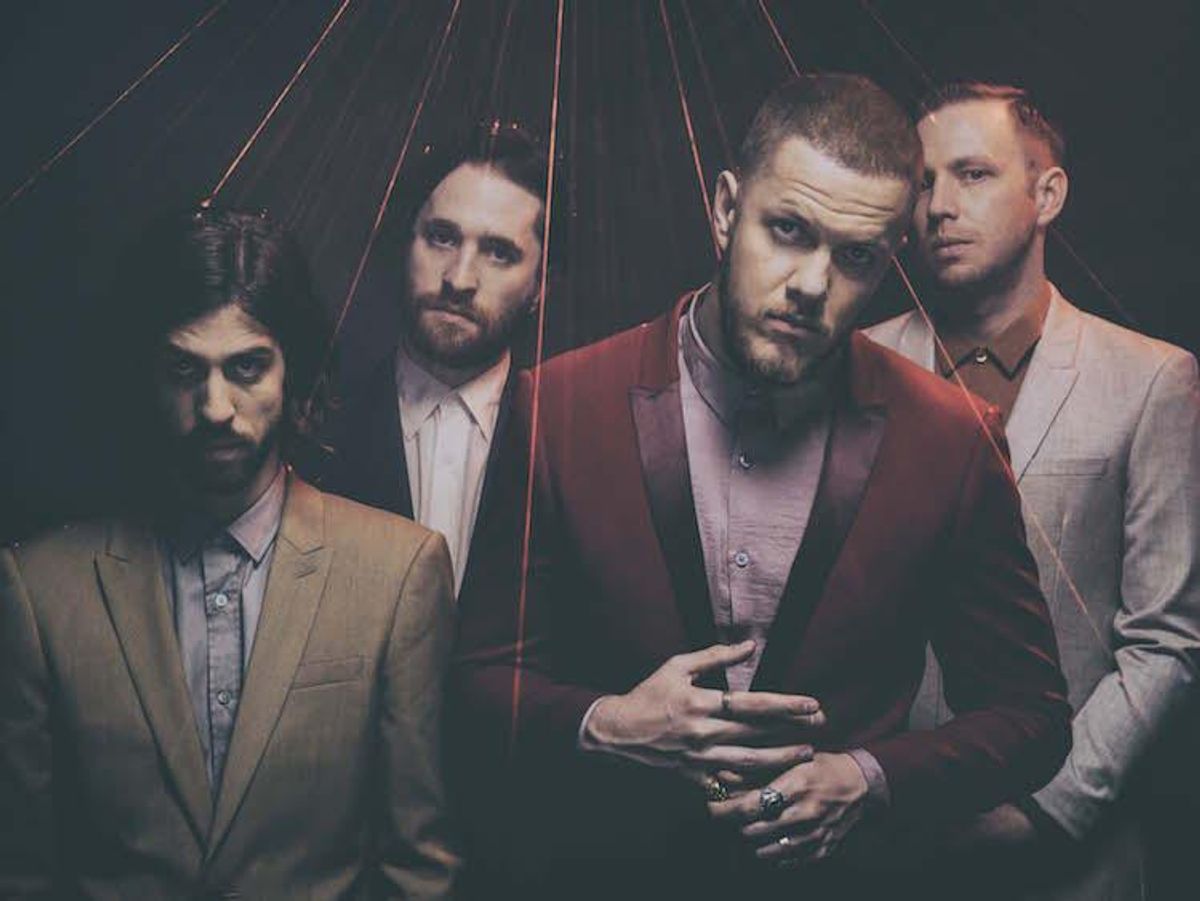


















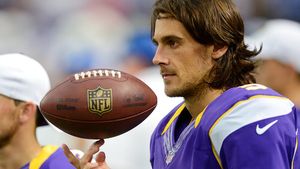







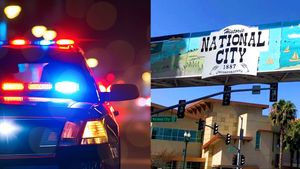







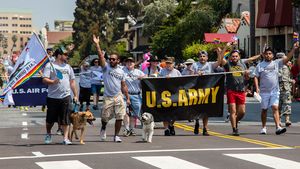


















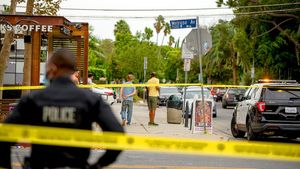


































Did 'The White Lotus' waste Lisa's acting debut?